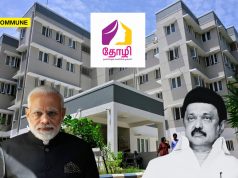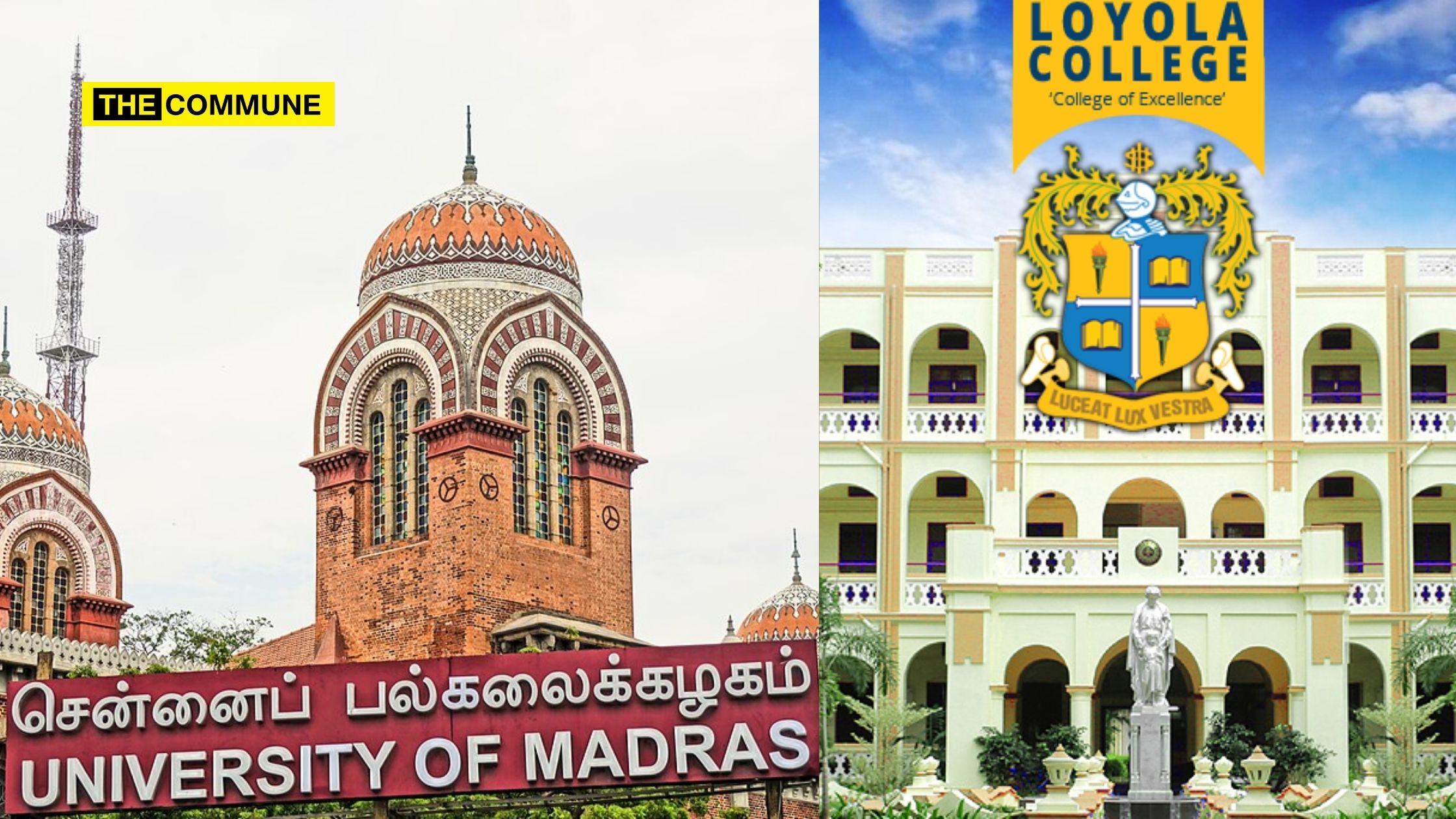
A new controversy is erupting at one of Chennai’s most prestigious institutions, Loyola College, as allegations surface about unauthorized foreign academic collaborations — and a potential cover-up by its parent body, the University of Madras.
At the center of the storm is R. Joseph D’ Kennedy, a Loyola alumnus and national representative of Ending Clergy Abuse (ECA) India. Kennedy has filed a detailed and damning complaint, alleging that the Jesuit-run college has repeatedly flouted affiliation norms by entering into academic agreements with foreign universities without the required approvals — and that the University of Madras has knowingly turned a blind eye.
Kennedy’s claims are backed by multiple Right to Information (RTI) replies, university records, and public documentation that point to a decade-long pattern of regulatory evasion.
The RTI That Sparked The Fire
On February 15, 2025, Kennedy filed an RTI application (Ref. No. PIO/RTI/2025/074) seeking information on:
- The rules governing MoUs between affiliated colleges and foreign universities;
- Whether Loyola College had obtained permission for tie-ups with institutions such as:
- Avila University, Kansas City
- Ajman University
- University of Dubai
- Skyline University
- Sunway University, Malaysia
- American University of Sovereign Nations (AUSN)
- Any action taken by the University in response to possible violations.
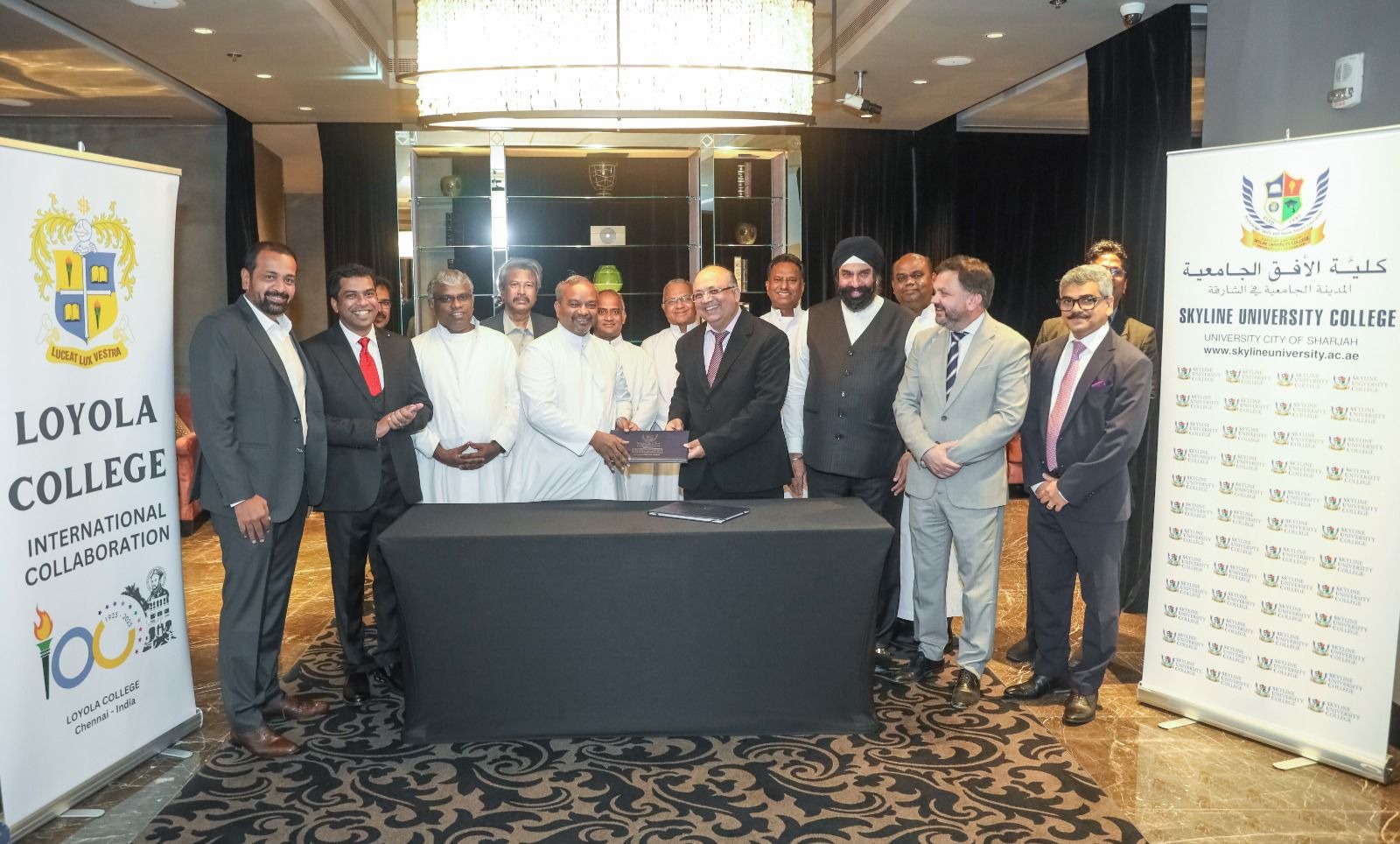
The reply, received after a first appeal on March 21, 2025 (Ref: PIO/RTI/2025/100), was startling in its vagueness. While the University of Madras admitted that approval is mandatory for student and faculty exchange programs, it claimed it was “unaware” whether Loyola had ever executed such exchanges — despite the college’s official Loyola International Academic Collaborations (LIAC) portal and brochures openly advertising these partnerships.
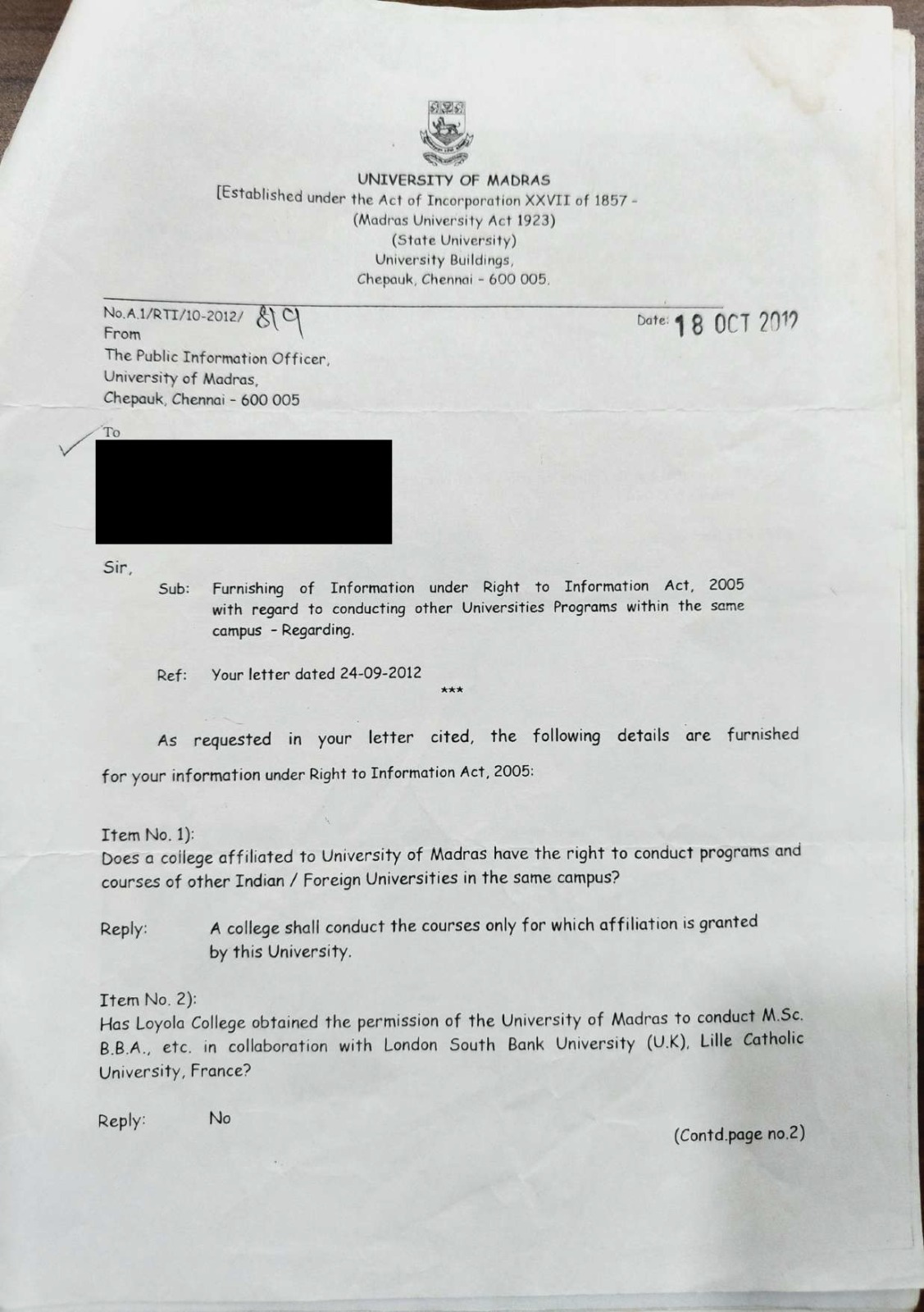
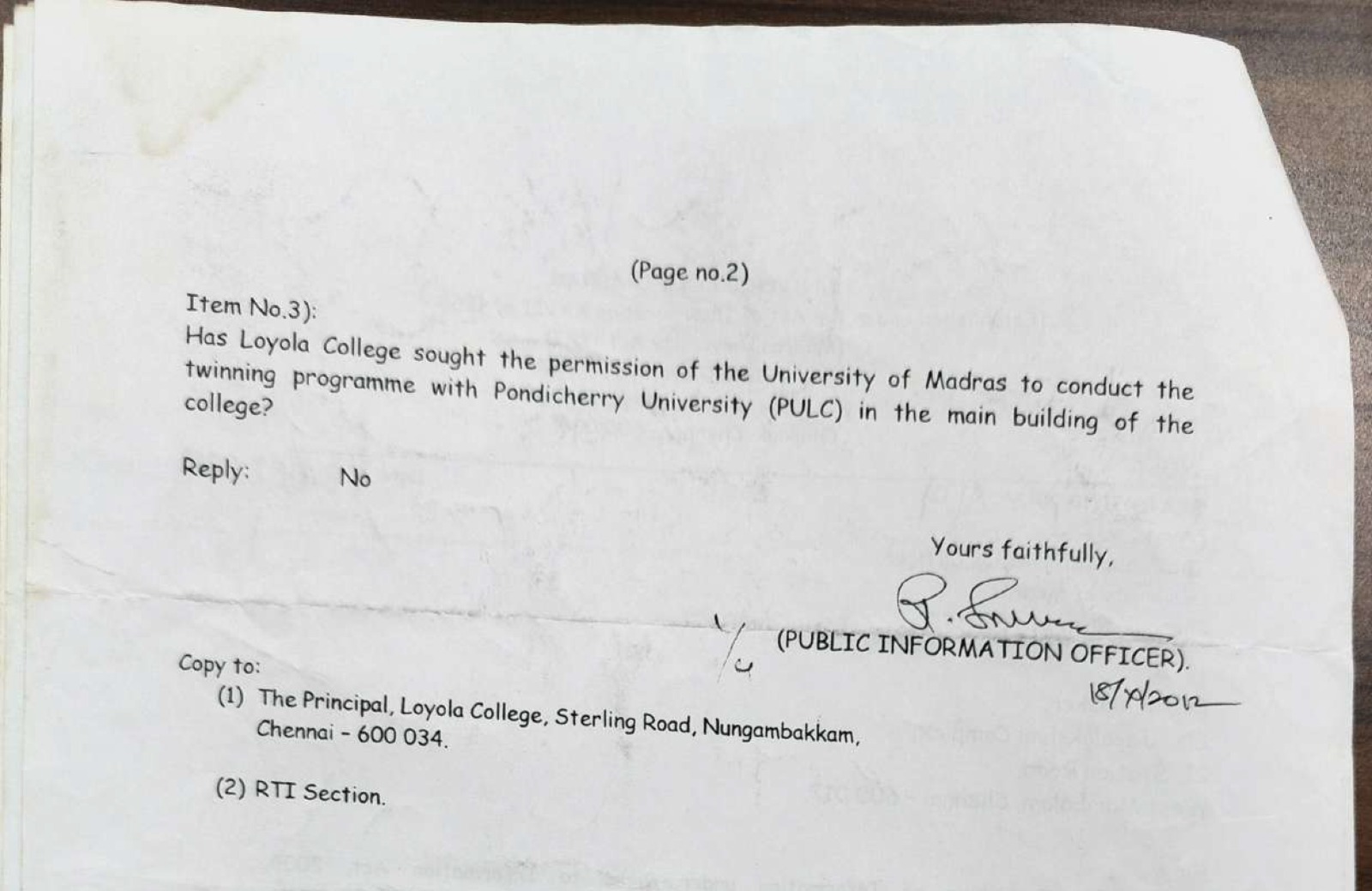
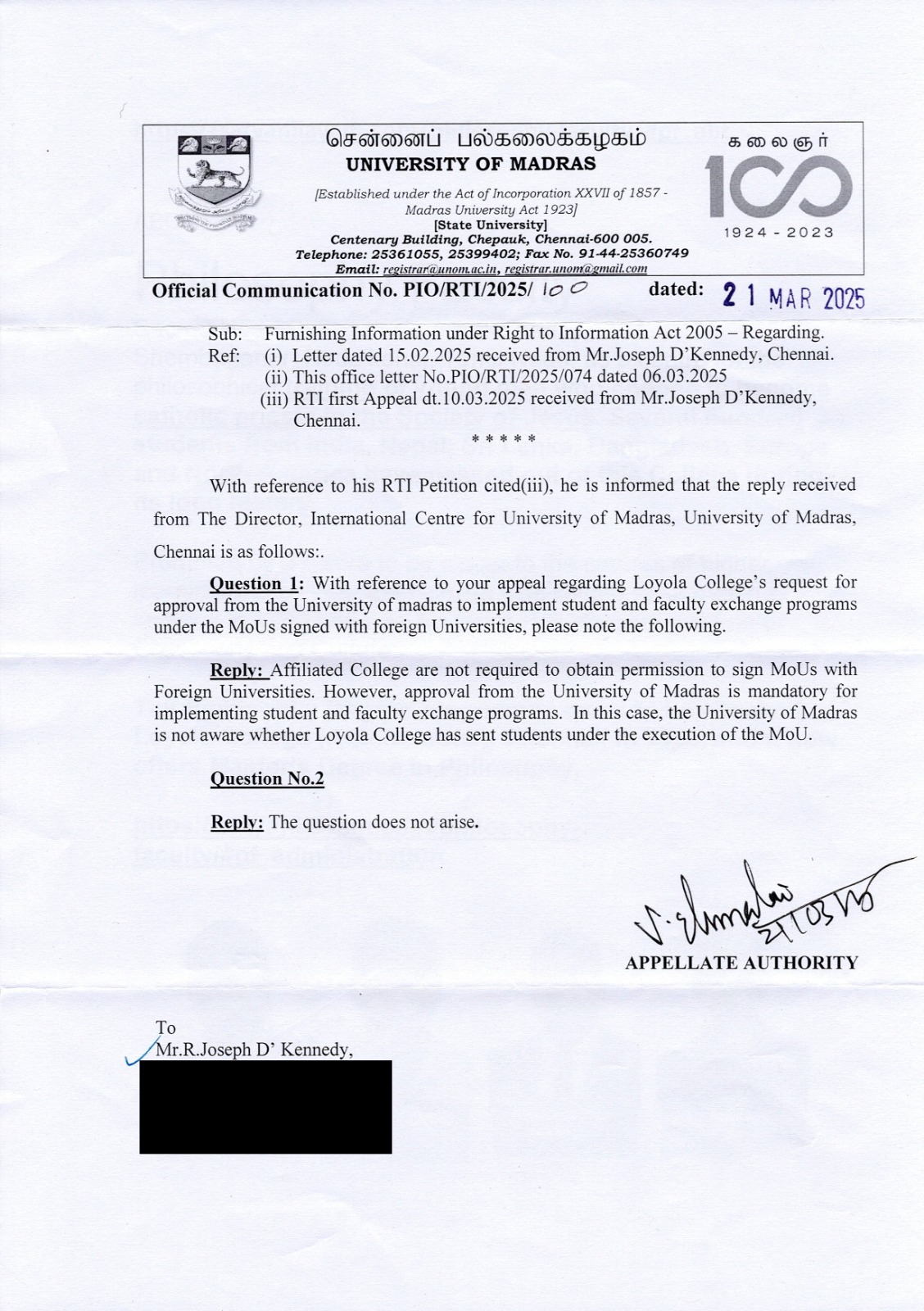
Contradictions, Cover-ups, And A Decade-Long Silence
Kennedy’s complaint highlights the disturbing contrast between this evasive response and a much clearer RTI reply issued by the same university in 2012. That earlier communication explicitly stated:
“A college shall conduct the courses only for which affiliation is granted by this University.”
It also confirmed that Loyola College had not obtained approval for foreign tie-ups with institutions like London South Bank University (UK), Lille Catholic University (France), and a twinning program with Pondicherry University (PULC).
“This is not a one-off lapse — it’s a pattern,” Kennedy told The Commune. “For over a decade, Loyola has been engaging in unauthorized collaborations, while the University’s response has shifted from strict enforcement to convenient ignorance. It’s either gross negligence or willful complicity.”
A Crisis Of Trust And Oversight
Kennedy’s complaint raises serious, unanswered questions:
1. Why did the University’s policy on prior approval change without any public explanation?
2. How can the University claim ignorance of foreign partnerships that Loyola has proudly advertised?
3. Why has no inquiry or disciplinary action been initiated despite documented violations?
The activist has called for urgent intervention by the Chancellor of the University of Madras (Governor of Tamil Nadu) and the University Grants Commission (UGC), demanding disciplinary action against both Loyola College and complicit university officials.
“This is bigger than a procedural lapse,” Kennedy asserted. “It undermines student welfare, academic integrity, and the credibility of our institutions. Loyola was once a beacon of academic excellence. What we’re seeing now is institutional decay — and a betrayal of everything it claimed to stand for.”
As of now, neither Loyola College nor the University of Madras has issued an official response.
Subscribe to our channels on Telegram, WhatsApp, and Instagram and get the best stories of the day delivered to you personally.



